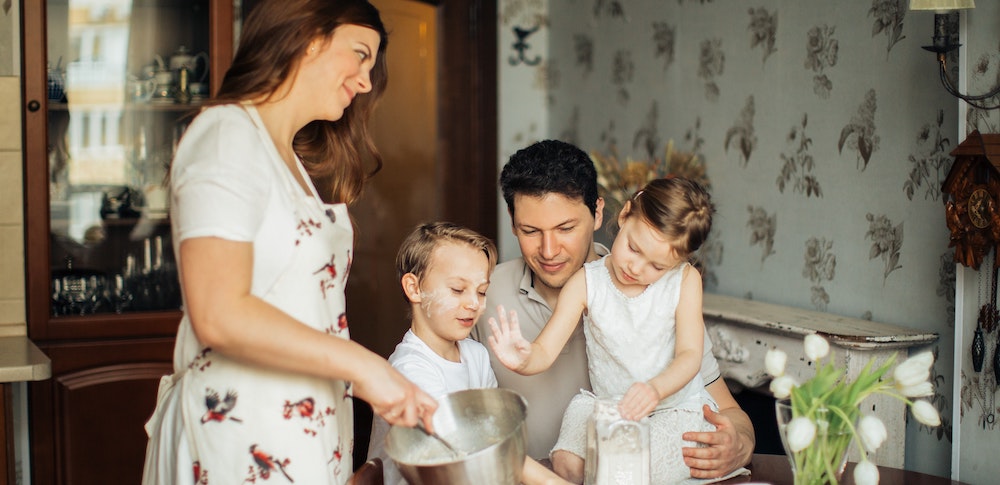Unveiling the Perks of Co-Parenting Post-Divorce
Discover the perks of co-parenting post-divorce: Find enhanced emotional support, shared financial responsibilities, consistent parenting styles, increased quality time for children, and improved communication and cooperation. The journey ahead holds invaluable benefits for you and your children, paving the way to a more stable and harmonious post-divorce life. Embrace this opportunity to create a supportive environment filled with love, structure, and understanding. Your commitment to co-parenting will not only benefit your children but also nurture a positive co-parenting relationship that can lead to long-term rewards.
Key Takeaways
- Co-parenting provides emotional support and companionship post-divorce.
- Shared financial responsibilities create trust and cooperation.
- Consistent parenting styles offer security and stability for children.
- Quality time spent with children strengthens bonds and creates lasting memories.
- Improved communication and cooperation enhance the co-parenting relationship.
Enhanced Emotional Support

Co-parenting post-divorce can provide you with a valuable source of enhanced emotional support during this challenging time. Maneuvering through the aftermath of a divorce can be emotionally draining, but having a co-parent by your side can offer understanding and empathy like no other.
By sharing the responsibilities of raising your children, you create a support system that can help you cope with the ups and downs of post-divorce life.
During this period, don’t hesitate to explore counseling resources with your co-parent. Seeking professional guidance together can strengthen your communication, provide insights into effective co-parenting strategies, and offer a safe space to address any lingering emotional issues.
These counseling sessions can aid in establishing healthy boundaries, fostering cooperation, and promoting a harmonious co-parenting relationship for the well-being of your children.
Shared Financial Responsibilities

Managing shared financial responsibilities post-divorce can be a complex but important aspect of your co-parenting journey. Budget planning becomes essential to make sure both you and your ex-spouse are contributing fairly to joint expenses while meeting individual financial obligations. It may help to sit down together regularly to review expenses, adjust budgets, and address any concerns openly.
Financial transparency is key in co-parenting. Being honest about your financial situation and discussing financial goals can foster trust and cooperation. Consider setting up shared savings accounts for your children’s future needs, like education or extracurricular activities. This can also serve as a way to build a financial partnership focused on your children’s well-being.
Consistent Parenting Styles
To guarantee a harmonious co-parenting dynamic post-divorce, aligning your parenting styles to be consistent is key in providing stability and structure for your children.
Unified discipline between both parents is essential in making sure that expectations and consequences are clear and consistent. When children receive consistent responses to their behaviors, it helps them feel secure and understand boundaries.
Synchronized schedules play an important role in this consistency, as they create predictability and routine for your children. Having a shared calendar or schedule can help both parents stay organized and make sure that transitions between households are smooth and predictable for the children.
By maintaining consistent parenting styles and synchronized schedules, you can create a sense of security and normalcy for your children amidst the changes that come with divorce.
Increased Quality Time for Children

Make sure to prioritize spending quality time with your children to strengthen your bond and create lasting memories. Family bonding is essential post-divorce, and shared activities play a significant role in fostering this bond.
Engaging in activities together not only helps in creating a sense of togetherness but also provides your children with a stable and comforting environment.
By participating in shared activities like family game nights, picnics, or even movie marathons, you’re giving your children the gift of your time and undivided attention. These moments allow for open communication, laughter, and the building of new traditions that can help your children feel secure and loved during a time of change.
Quality time spent with your children post-divorce can help reassure them that they’re still a priority in your life. It also allows for the creation of positive memories that they can carry with them throughout their lives.
Improved Communication and Cooperation

Enhancing your communication and cooperation skills with your co-parent post-divorce can greatly benefit your children’s well-being and the overall co-parenting dynamic. Effective problem solving is key in handling the challenges that may arise when co-parenting. By improving your ability to communicate openly and respectfully with your ex-partner, you can create a more harmonious environment for your children to thrive in.
Setting healthy boundaries is also essential in promoting a positive co-parenting relationship. Clearly defining roles, responsibilities, and expectations can help prevent misunderstandings and conflicts. It allows both parties to understand their individual roles and work together more efficiently for the well-being of the children.
Frequently Asked Questions
How Can Co-Parenting Impact New Relationships for Both Parents?
In new relationships, co-parenting shapes relationship dynamics and emotional impact. Trust-building and open communication are crucial. Honesty about your co-parenting situation fosters understanding. Balancing past and present needs nurtures healthy connections.
What Strategies Can Co-Parents Use to Handle Conflicts Effectively?
When handling conflicts as co-parents, focus on effective communication and conflict resolution. Seek co-parenting support or counseling if needed. Remember, prioritizing your children’s well-being and maintaining open dialogue can help navigate challenges successfully.
Is It Possible for Co-Parents to Maintain Boundaries With Extended Family?
Maintaining boundaries with extended family in co-parenting can be demanding, but it’s essential for healthy family dynamics. Communicate openly with your ex-partner about expectations, involve extended family in a respectful manner, and prioritize your child’s well-being above all.
How Can Co-Parenting Help Children Cope With the Divorce Aftermath?
To help your children cope with the divorce aftermath, co-parenting guarantees consistent child support and fosters emotional stability. By prioritizing their well-being, you create a nurturing environment that aids in their healing process.
What Are the Best Ways to Navigate Different Parenting Values and Beliefs?
When managing different parenting values and beliefs, communication strategies are key. Respect differences, find common ground, and set boundaries together. By listening, compromising, and prioritizing your child’s well-being, you can create a harmonious co-parenting dynamic post-divorce.
Conclusion
To sum up, co-parenting post-divorce can offer a range of benefits for both parents and children. By working together, you can provide emotional support, share financial responsibilities, maintain consistent parenting styles, and create more quality time for your children.
Remember, communication and cooperation are key to making co-parenting successful. Embrace the perks and continue to prioritize the well-being of your children as you navigate this new chapter in your lives. You’ve got this!

Chad Adan Kace, a young dad from Vermont, shares his parenting journey with a touch of humor and lots of love. Father to a lively baby, he explores the joys and challenges of fatherhood through his stories.







